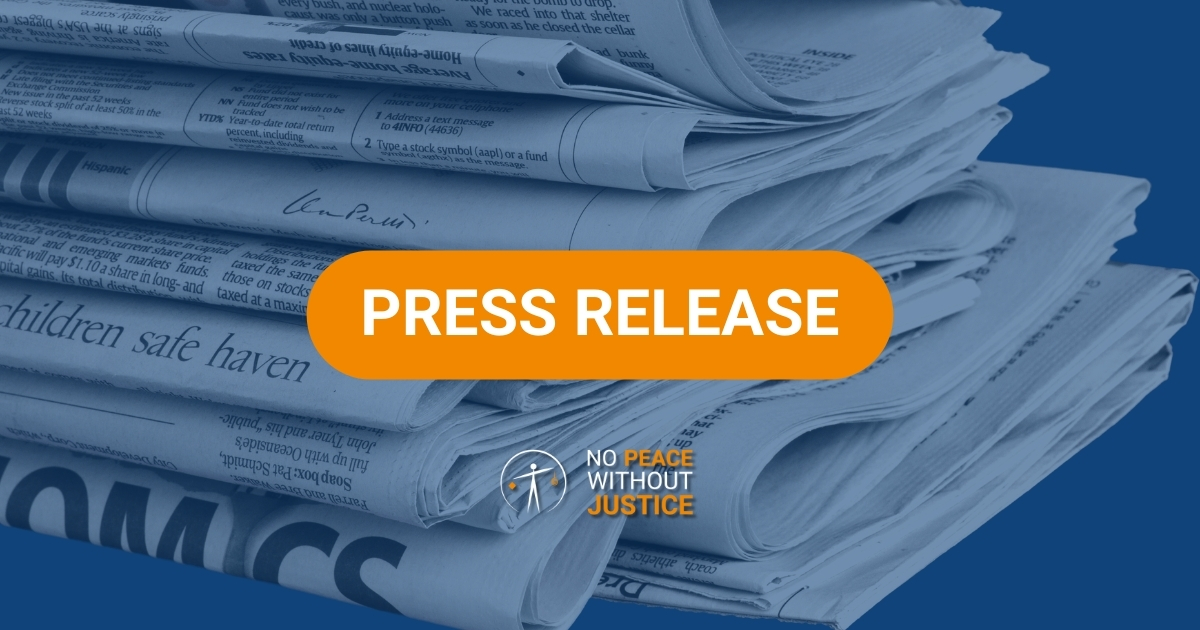On 24 March 2023, NPWJ observes the International Day for the Right to the Truth Concerning Gross Human Rights Violations and for the Dignity of Victims, honouring the memory of Archbishop Oscar Arnulfo Romero – who was murdered on 24 March 1980 in El Salvador as a result of his advocacy and who this day commemorates – and reiterating the importance of truth, reconciliation and accountability in the prevention of recurring human rights violations and promotion of justice.
NPWJ has a strong focus on fighting impunity and promoting truth and reconciliation through its work on international criminal justice, which constitutes the original core of NPWJ. We strive to ensure broad support for accountability as a systemic response to massive violations of human rights and international criminal law; reduce the expectation of impunity and remove the perception of rewards for violence on the part of parties to the conflict, potential perpetrators, victims and affected populations; and increase the impact, effectiveness, transparency and accountability of accountability mechanisms to stakeholders.
While the impacts of historical injustices continue to intensify due to persistent impunity, a lack of remedy, truth or reparations for these crimes means gross violations will continue, which we are seeing today globally. The plight of the Rohingya in Myanmar continues as the international community repeatedly fails to acknowledge, intervene and fight the violations against them adequately and the State continues to deny responsibility and end these heinous crimes. As a result, around 600,000 Rohingya continue to be restricted to residing in Rakhine State, subject to abuses amounting to crimes against humanity including apartheid, persecution and deprivation of liberty. Women and LGBTQ+ persons remain particularly vulnerable. Women report repeated sexual violence and gendered harassment at the hands of police and military officials since the coup. LGBTQ+ people face an inhumane penal code that not only outlaws their identity – with punishment being up to 10 years in prison and a fine – but also makes them particularly at risk of sexual violence in custody.
In Amazonia, historical injustices also continue to present themselves in the form of continuing human rights violations against indigenous peoples. The Tapayuna people are one such example; they traditionally occupied a large area in North-West Mato Grosso, among the Rio do Sangue and Rio Arinos, but faced mass eviction, two large massacres and one mass poisoning in the 1960s. Survivors were evicted from their demarcated land in 1973 and taken approximately 800km away. Their case is a landmark juridical case for the current judgement by the Supreme Court about “time framework”, an interpretation of the Constitution according to which indigenous peoples who did not occupy their land in 1988 would have no right to that land. We are working on a project aiming to remedy these historical injustices, providing truth and reparations for the Tapayuna people by creating evidence to bring back the Tapayuna to their original land.
NPWJ, therefore, condemns the persistent deep-rooted culture of impunity globally for the most serious crimes – particularly the ongoing violations in Myanmar and Amazonia – and reiterates its commitment to the promotion of truth, reconciliation, and accountability processes, particularly in reference to crimes under international law and the protection of human rights defenders. Thus, both on this occasion and every day, NPWJ urges States to take concrete steps by facilitating truth and reconciliation processes; supporting the ICC in ratifying and implementing the Rome Statute and cooperating with their international investigations to increase accountability; and committing to providing reparations for survivors of historical injustices who continue to see their human rights violated.




